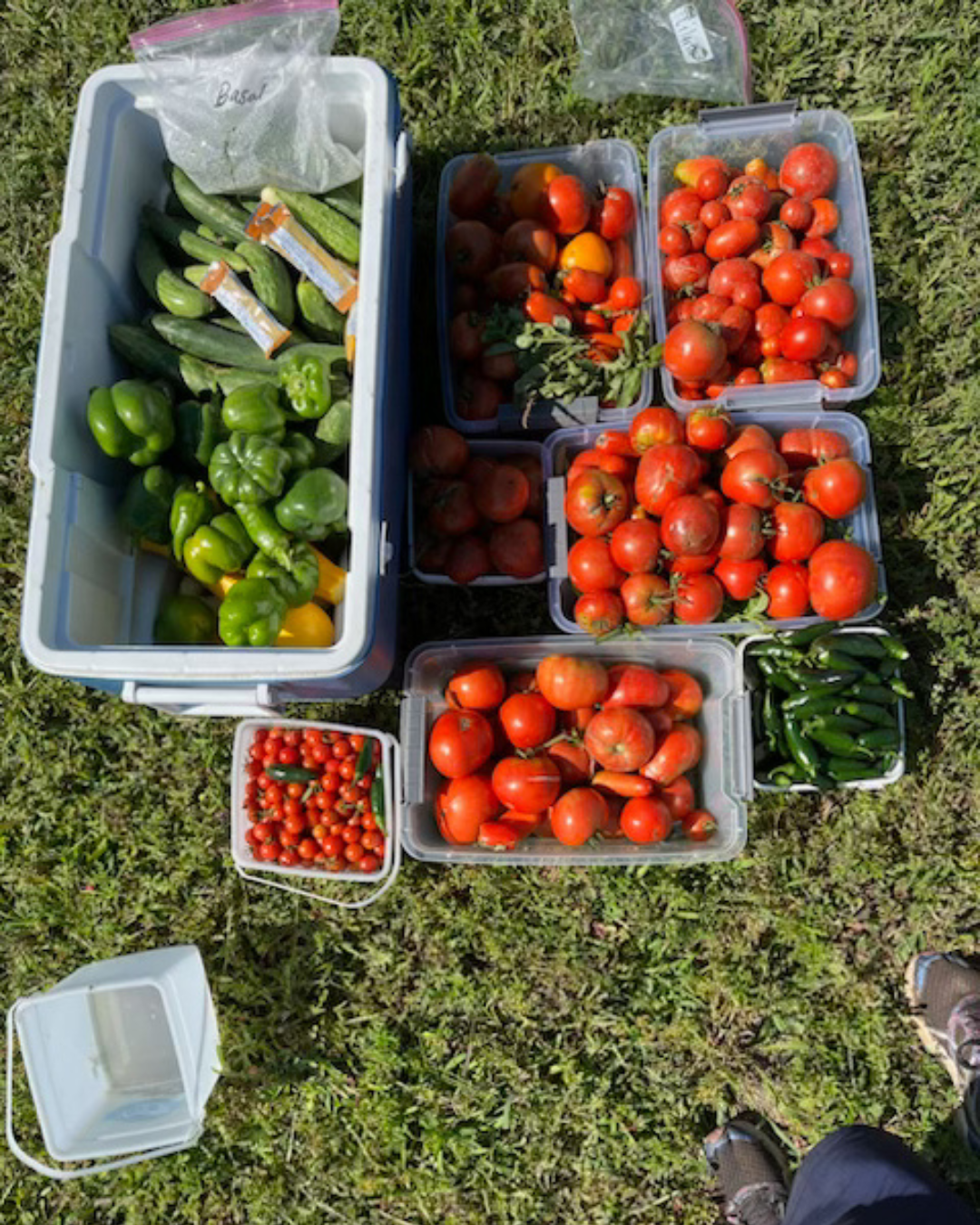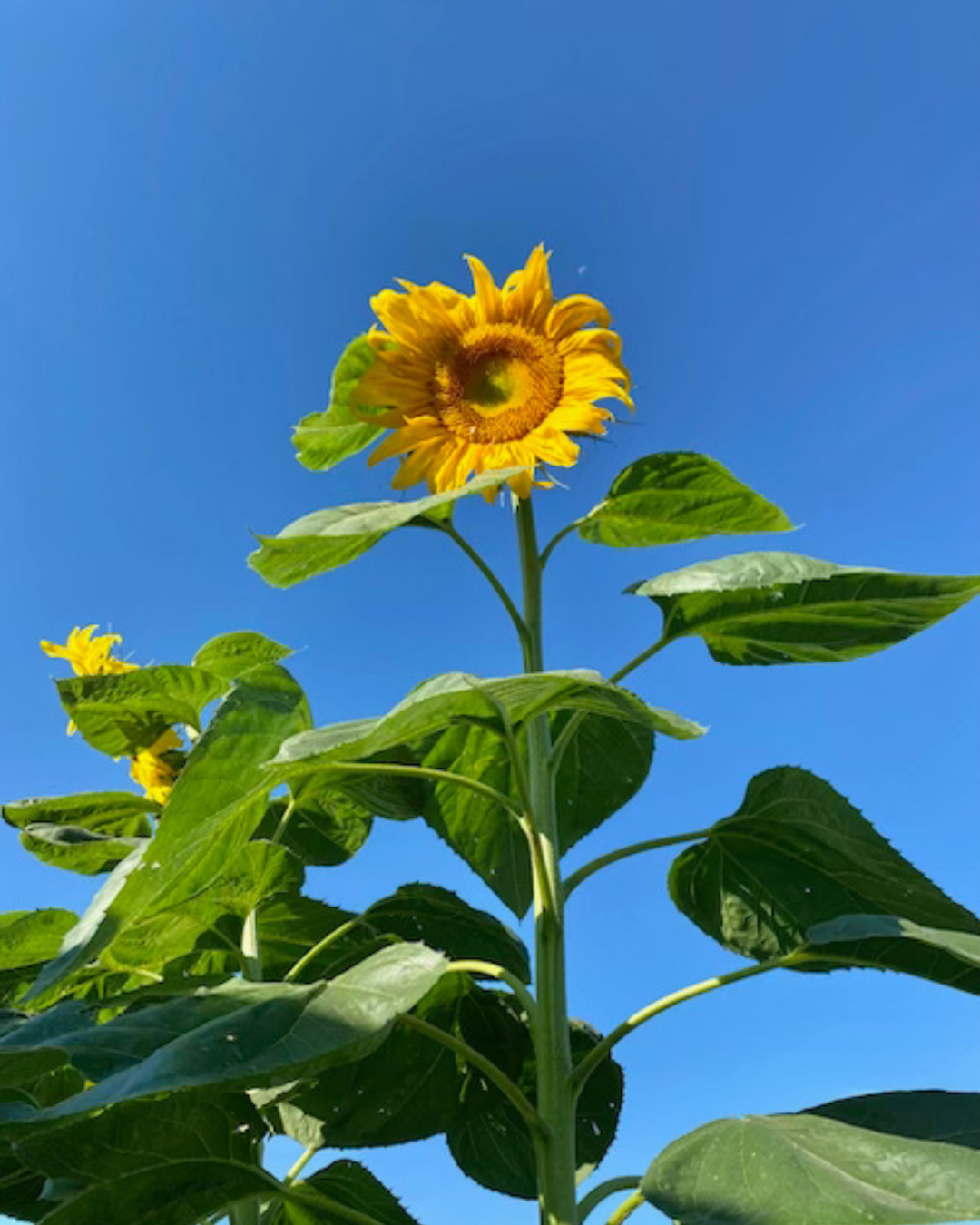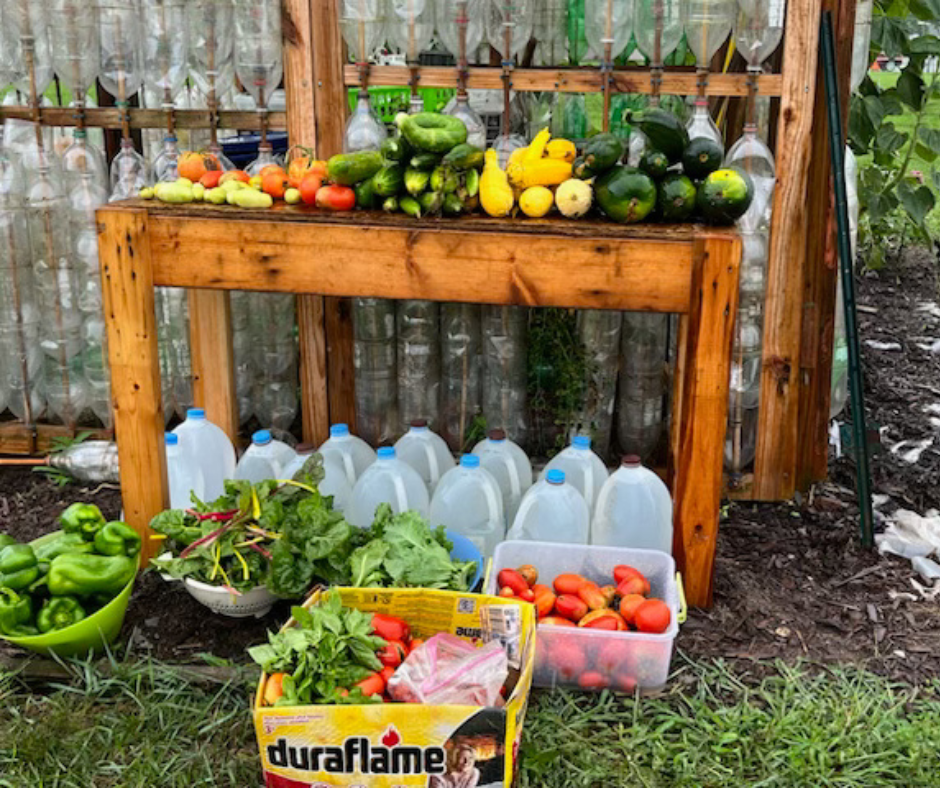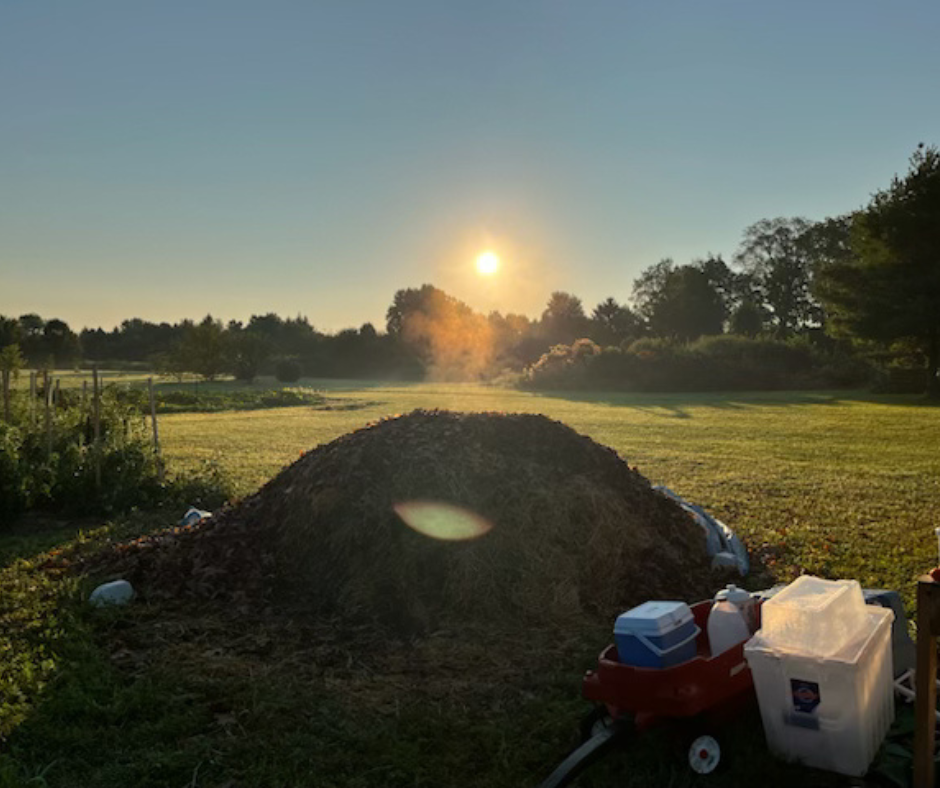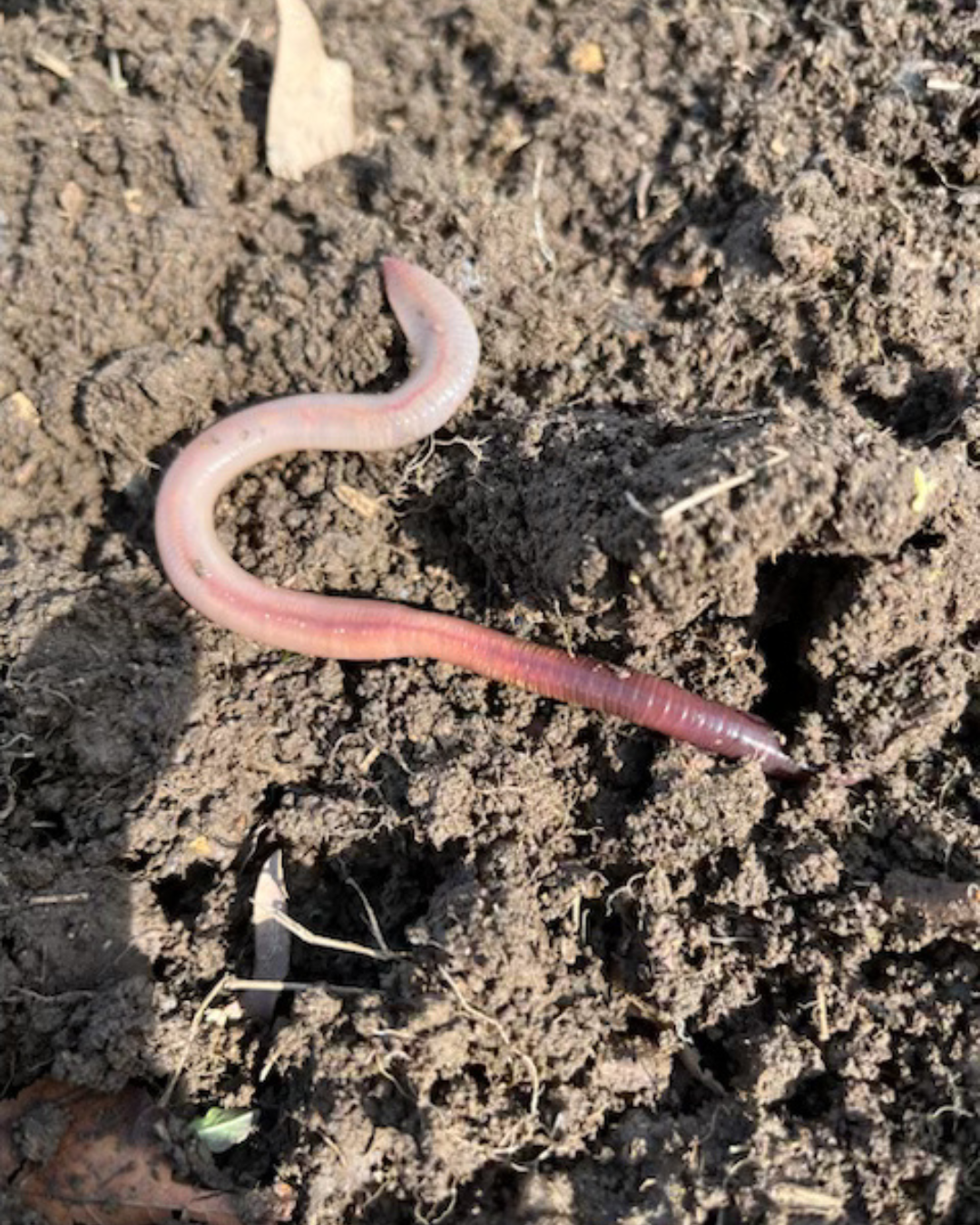Garden Details
Garden Details
Our mission is to respect the dignity and sanctity of the lives of our food insecure neighbors in Hamilton County (HC) by providing the highest possible quality of nutritional fruits and vegetables to them through the services of local food pantries, particularly St Vincent DePaul in Noblesville.
While Hamilton County is recognized as the wealthiest county in Indiana, there is still a large and growing population of food insecure individuals tucked into this county. In 2023, local food pantries reported a 25% increase in requests for food totaling $309,438. In fact, HC has the 8th highest rate of food insecurity in IN (32,160 human beings; 9.2% rate). Moreover, 72% are likely ineligible for SNAP benefits due to income limits and that need will grow if SNAP and other benefits are eliminated by the federal government. Compounding this problem, the average cost of a meal in HC ($3.59) is about 126% higher than the average cost across IN (HCHFB 2024 report). These vulnerable people cross ethnic groups and range in age from children to seniors. In a recent analysis from JAMA Internal Medicine, people who are food insecure are at greater risk of dying prematurely and living a shorter life after age 50. (Ma, H. et al., JAMA Intern Med. 2024;184(3):301-310.
Garden Practices
Garden Practices
We’re creating a more sustainable and eco-friendly garden by adapting a no/low till approach that is not organic per se, but we strife to use organic practices and pesticides where possible. We utilize a system of mulched beds and rows using cardboard recycled from the parish and St Vincent de Paul as well as mowed grass clippings, fallen leaves, decomposed horse manure, and recycled pumpkins donated from the parish and community. Together these organic substances have enhanced our soil fertility and substantially reduced the need for weeding.. Just ask our toddlers about the large number of worms they’ve come out to study! We continue to expand and bring innovation to our garden. Last year, we added an improved system to keep our tomato cages upright, more companion planting, blueberry bushes, doubled our asparagus plot, increased our strawberry field by 6-fold, and an herb garden. We’ve also added a research garden to identify the most effective methods to combat pests in our squash plots.
We've just received a diocesan grant in 2024 that brought us a reliable water source to the garden. In 2025, we'll add an irrigation system.
In our annual vegetable beds we plant: tomatoes (determinant and indeterminant), peppers (sweet and hot), potatoes (in cages), sweet potatoes, onions, cabbage, greens of various types, Swiss chard, okra, carrots, beets, radishes, beans, peas. We're trying kohlrabi and kale this year.
In our herb row, we're growing basil, oregano, thyme, rosemary, cilantro, chives, sage, dill and lavender.
In our perennial bed we're growing asparagus, strawberries, blackberries, raspberries and hopefully blueberries.
Around the perimeter to attract pollinators, we grow sunflowers, a variety of native plants and other donated flowers.
In 2024, the Sow Love Garden donated over 50,721 servings of food (5,155 lbs) to our local St Vincent dePaul food pantry. A small amount of the "less than perfects" went to the regional Second Helpings program that turns these upcycled vegetables into nutritious meals for the food insecure in the greater Indianapolis area including a couple programs in HC. Second Helpings also helps train young chefs making this a double win for our produce. Of course, volunteers in the garden can also enjoin the profits from the garden.
In the course of a year, the Sow Love Garden has over 50 volunteers in various capacities volunteering >400 hours including 2-3 Garden-specific Service Days and as a site for the parish-wide Service Day. Our OLG School children also help out. The Service Club has planted peas and harvested cherry tomatoes. Our preschool STEM children are regular visitors who look for worms, bugs and sample vegetables. They've previously planted pumpkins and watermelons. Our school age children have also helped with planting potatoes and herbs. Finally, we are a source of volunteer hours for Boy Scouts, Confirmation candidates, Early Religious Education volunteers, and the school's Disciple Scholars. Our volunteers range in age from 3 to 80-years-old. Not only do these volunteers participate in service work benefitting the vulnerable in our community, but also care for God’s creation as they do so.
As explained in the Catholic Moment article featuring the OLG Sow Love Garden from March 31, 2024, building a parish community is a key focus of the OLG pastorate, and the garden is a really great way to do that. Fr Clayton explains, “It points to the culture of personal investment in the mission of the Church that we are striving to foster at Our Lady of Grace. This garden has become a wonderful way to serve Christ in others and to encounter Him in the unseen labor of every day.” When we donate our fruits/vegetables, we also evangelize, letting the broader community know that OLG is actively involved in ministering to our neighbors in need.
The OLG Sow Love Garden is just one cog in a much larger wheel that seeks to improve the health of our community. More fresh fruits and vegetables available to the hungry of our diocese means the potential for greater nutritional security. According to the National Institutes of Health Minority Health and Health Disparities, nutrition security means “consistent access, availability, and affordability of foods and beverages that promote well-being, prevent disease, and, if needed, treat disease.” (Food Accessibility, Insecurity and Health Outcomes (nih.gov)). In addition, lessening food insecurity has the additional bonus of lessening the burden of housing, a growing threat in HC. Both of these initiatives are on the 2025 agenda for the HC Secure Food Coalition, and the mission of the OLG Sow Love Garden to provide more nutritional food for our community plays directly into lessening these issues in our diocese and county. In just one example, our garden-sponsored pumpkin drive produced boxes of pumpkin seeds which were fed to the chickens at the nearby Teter Organic Farm. The eggs produced by these chickens then provide valuable protein to our food insecure community through their donation. What could just have been waste has been turned into more food for our neighbors.
Additional Information
Additional Information
Like any garden, the Sow Love Garden faces plenty of challenges. Up until this year, we've had to water the garden almost exclusively by hand when we didn't receive adequate rain. Thanks to donations and a diocesan grant, we've been able to get a 1000 ft water line installed that connects us to an existing well. This year, a local engineering class from IU Indy is building us the connections from the water line to an irrigation system. Figuring out that irrigation system will be a happy challenge for 2025. This same group is building us a small greenhouse and tool shed. Funding comes from the university.
Pest control is another issue any vegetable/fruit gardener faces as the bugs and bunnies take advantage of this food source. In 2024, we faced an onslaught of cucumber beetles, squash bugs and squash vine borers that wreaked havoc on our cucumbers, summer and winter squash production. To combat this issue, we’d established a research garden that compared 6 different techniques to increase zucchini production. While the results were interesting, we could not control the cucumber beetle infestation in particular without pesticides. We did manage to grow a decent amount of zucchini in 2024, but the effort was enormous, and the did not offset the diseases spread by the cucumber beetles. We're taking a 1-2 year hiatus on these types of vegetables.
The bunnies were also a huge challenge in 2024. By building a 1.5 ft fence around the perimeter, we were mostly able to keep them out (except 1 living in the garden). Double fencing susceptible crops like our eggplant and beans helped. Likewise, using netting over small plants was helpful until they got too big. We'll also use more grow tunnels early in the season to protect our young plants.
Slugs have started to be a bigger issue with the use of leaves to mulch the garden. Treating them is a big commitment.
Finally, the wet growing season coupled with not using weed barrier last year provided an environment for pepper and tomato fungal and bacterial diseases. We used the Purdue University's pest identification lab to help us identify the problems. We're decontaminating our cages, moving our rows, and adding back our weed barrier to damp down this problem.
Funding is always an issue as we're mostly self-funded by our volunteers. We've been blessed with the diocesan grant and the IU Indy EPICs class engineers. In addition, a local commercial garden has provided us with all our tomato, pepper, eggplant and many herbs for the last 2 years and will again in 2025. The water line cost us only materials and the labor was donated for free. We've been blessed.
More volunteers would always be helpful as our most trusty volunteers are all retired individuals 62-80 years old. We try to employ an open volunteer system so that after orientation, volunteers can come whenever they can whenever they can.
Our irrigation system will need ongoing support as our highly calcified water tends to clog the lines each 1-2 years.
We continue to need metal poles and trellises for the garden. We're replacing our wooden stakes as termites seem to have invaded. We're moving back to weed barrier to grow our tomatoes and peppers. And will continue to expand our use of netting and frost blankets.
As our volunteer's age, getting down to pick low lying vegetables is problematic. We'd like to start growing our greens at higher levels, but this will take donations like metal grates, grow bags/soil, cinder blocks.
We have extra raspberry bushes to donate to others, but we want to plant an additional 100-200 ft of blackberry bushes.
We cannot make enough compost for the entire garden, and we'll need to buy some this year. Using compost really helps with our no till approach. Straw can also be used for our potato growing cages too. We lack a truck or trailer to haul these things to save on delivery fees.
The ultimate purpose of the OLG Sow Love Garden is to recognize the face of Jesus in the hungry and in our volunteers. Whether it’s a mom of 8 looking for some fresh produce to feed her family, a mom just needing a shoulder on a tough day, or a volunteer searching for peace, we encounter Jesus in our garden. For example, one volunteer has committed to praying for an individual each time he’s out working for the garden. In addition on our pick days, we solicit prayer petitions that we then offer up with our picked produce. It’s a real comfort to know folks are out there praying for you while doing the work for the Lord. It just strengthens and affirms our commitment to love our neighbors as commanded by Jesus.

